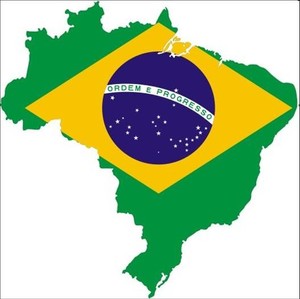In a report on the role of biosimilars in health care by Professor Dr Claudio Tafla of the University of São Paulo studied the market growth outlook from 2016 to 2025 for biological medicines. Biological medicines currently represent the pharmaceutical industry's largest source of innovation.
Market outlook for biological medicines in Brazil 2016‒2025
Home/Reports
|
Posted 18/02/2022
 1
Post your comment
1
Post your comment

The main Brazilian regulatory framework for the registration of biologicals is the Resolution of the Collegiate Directorate RDC No. 55/2010. The National Health Surveillance Agency (Agencia Nacional de Vigilancia Sanitaria, ANVISA) stipulates that an originator/innovator/reference product is called a new biological product. A product that is not new or similar (such as biosimilars) is called a biological product and is defined as non-new.
According to the definition available on ANVISA website, biosimilars ‘are those biological products registered through development by comparability, which is the regulatory pathway used by a biological product or medicinal product to obtain registration, in which the comparability exercise in terms of quality, efficacy and safety between the product developed to be comparable and the comparator biological product was used’ [1].
Being among some of the highest cost medicines and also offering the best prospects for all market players, biologicals and biosimilars have attracted many pharmaceutical companies. This could generate a market ranging from the current R$820 billion (25% of total pharmaceutical sector revenues in 2016) to estimates of more than R$1.6 trillion by 2025, according to the Brazilian National Association of Private Hospitals (ANAHP 2018).
On the other hand, net spending for biological drugs in the US amounted to US$125.5 billion in 2018, an increase of 9.5% compared to the previous year. Spending on biosimilars, meanwhile, has doubled since 2017, but that figure still represents less than 2% of the total biological drug market in the country. Presenting forecasts for 2023, a report by IQVIA, a US multinational company that provides services for the combined health information technology and clinical research industries, estimates that net drug spending in the US will increase from US$344 billion in 2018, to US$420 billion, adding US$73 billion in new spending. Using 2018 as a baseline, the report states that biosimilars and generics have modest volume growth [2].
From these years of studies, improvements and developments, it has been observed that these new technologies, biologicals and their biosimilars, have brought improvements in health outcomes despite the budgetary impact they have entailed and the challenges that still exist for patients who benefit from their use.
In Brazil, in a study by Gabriela Mosegui, Cid Vianna and Thaís Catão showed that between 2015 and 2019 there was no saving of resources by the federal government with the purchase of similar biotherapeutic products for the treatment of cancer, however, working with different options like public purchases carried out through transparent bidding processes, where competition is encouraged, will expand public health access to more biosimilar treatments [3].
Related articles
Comparison of the cost of development of biologicals and biosimilars
Pharmaceutical market of biological and biosimilar medicines in Brazil
| LATIN AMERICAN FORUM The new section of the ‘Latin American Forum’ on GaBI has been launched. The objective of this new section is to provide you with all the latest news and updates on developments of generic and biosimilar medicines in Latin America in Spanish. View last week’s headline article: Biosimilares aprobados en Colombia Browse the news in the Latin American Forum! Register to receive the GaBI Latin American Forum newsletter. Inform colleagues and friends of this new initiative. LATIN AMERICAN FORUM Se ha lanzado la nueva sección del ‘Foro Latinoamericano’ sobre GaBI. El objetivo de esta nueva sección es brindarle las últimas noticias y actualizaciones sobre desarrollos de medicamentos genéricos y biosimilares en América Latina en español. Vea el artículo principal de la semana pasada: Biosimilares aprobados en Colombia iExplore las noticias en el Foro Latinoamericano! Regístrese para recibir el boletín informativo GaBI Foro Latinoamericano. Informe a colegas y amigos sobre esta nueva iniciativa. |
References
1. Gomes EB, Rosseto R, Pinheiro L. Desenvolvimento de biossimilares no Brasil. J Soc Tech Environ Science. 2016;5(1):31-42.
2. Tafla C. O papel dos biossimilares na saúde. [The role of biosimilars in health]. Portuguese.
3. GaBI online - Federal purchases of biological drugs for cancer in Brazil [www.gabionline.net]. Mol, Belgium: Pro Pharma Communications International; [cited 2022 Feb 18]. Available from: www.gabionline.net/biosimilars/research/federal-purchases-of-biological-drugs-for-cancer-in-brazil
Permission granted to reproduce for personal and non-commercial use only. All other reproduction, copy or reprinting of all or part of any ‘Content’ found on this website is strictly prohibited without the prior consent of the publisher. Contact the publisher to obtain permission before redistributing.
Copyright – Unless otherwise stated all contents of this website are © 2022 Pro Pharma Communications International. All Rights Reserved.
Posted 18/05/2022 by Professor Dr Claudio Tafla
Reflections
Great opportunity this article gives us to reflect on the market
Guidelines
US guidance to remove biosimilar comparative efficacy studies
New guidance for biologicals in Pakistan and Hong Kong’s independent drug regulatory authority
Policies & Legislation
EU accepts results from FDA GMP inspections for sites outside the US
WHO to remove animal tests and establish 17 reference standards for biologicals
EU steps closer to the ‘tailored approach’ for biosimilars development

Home/Reports Posted 21/11/2025
Advancing biologicals regulation in Argentina: from registration to global harmonization

Home/Reports Posted 10/10/2025
The best selling biotechnology drugs of 2008: the next biosimilars targets








Post your comment